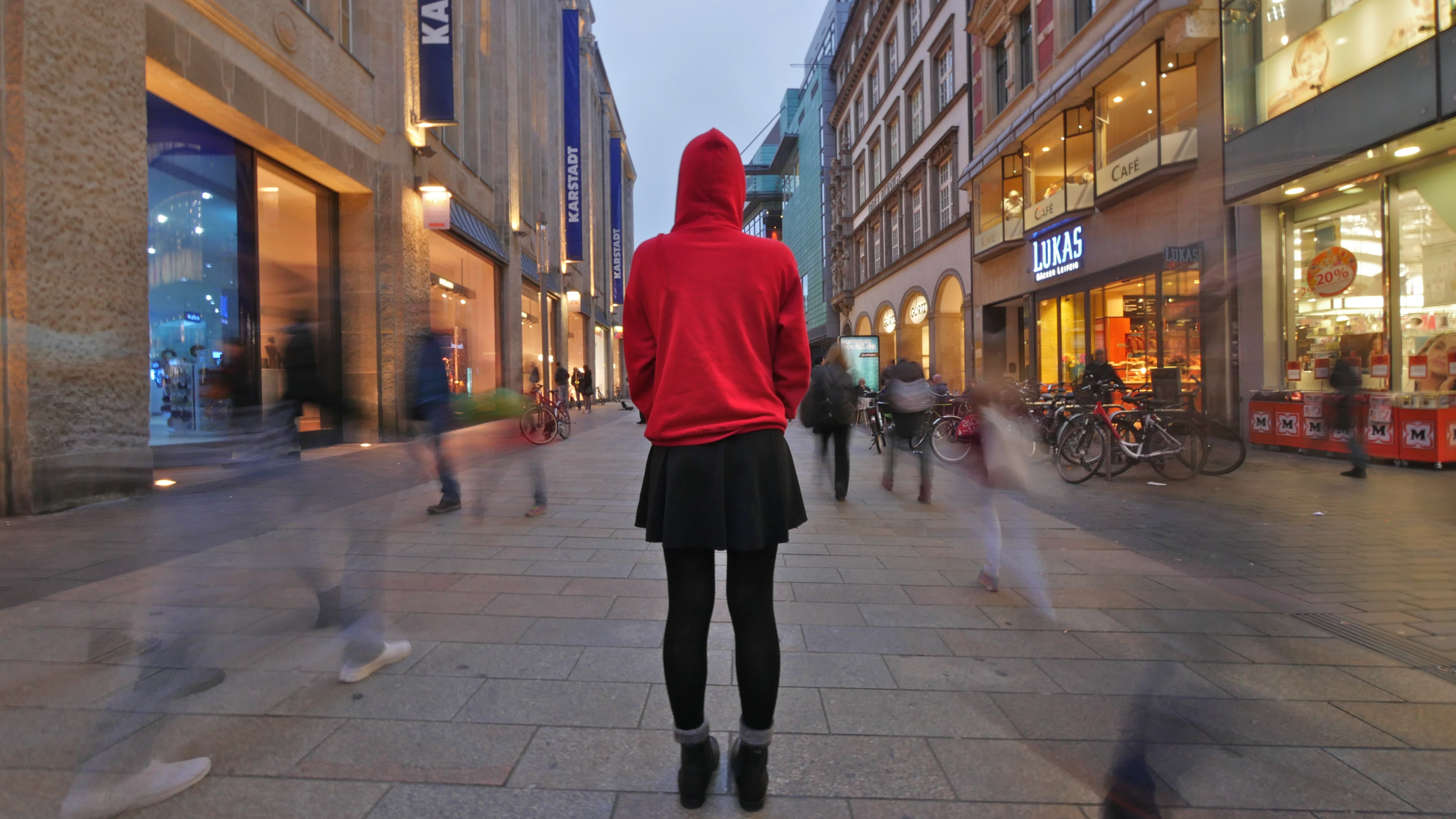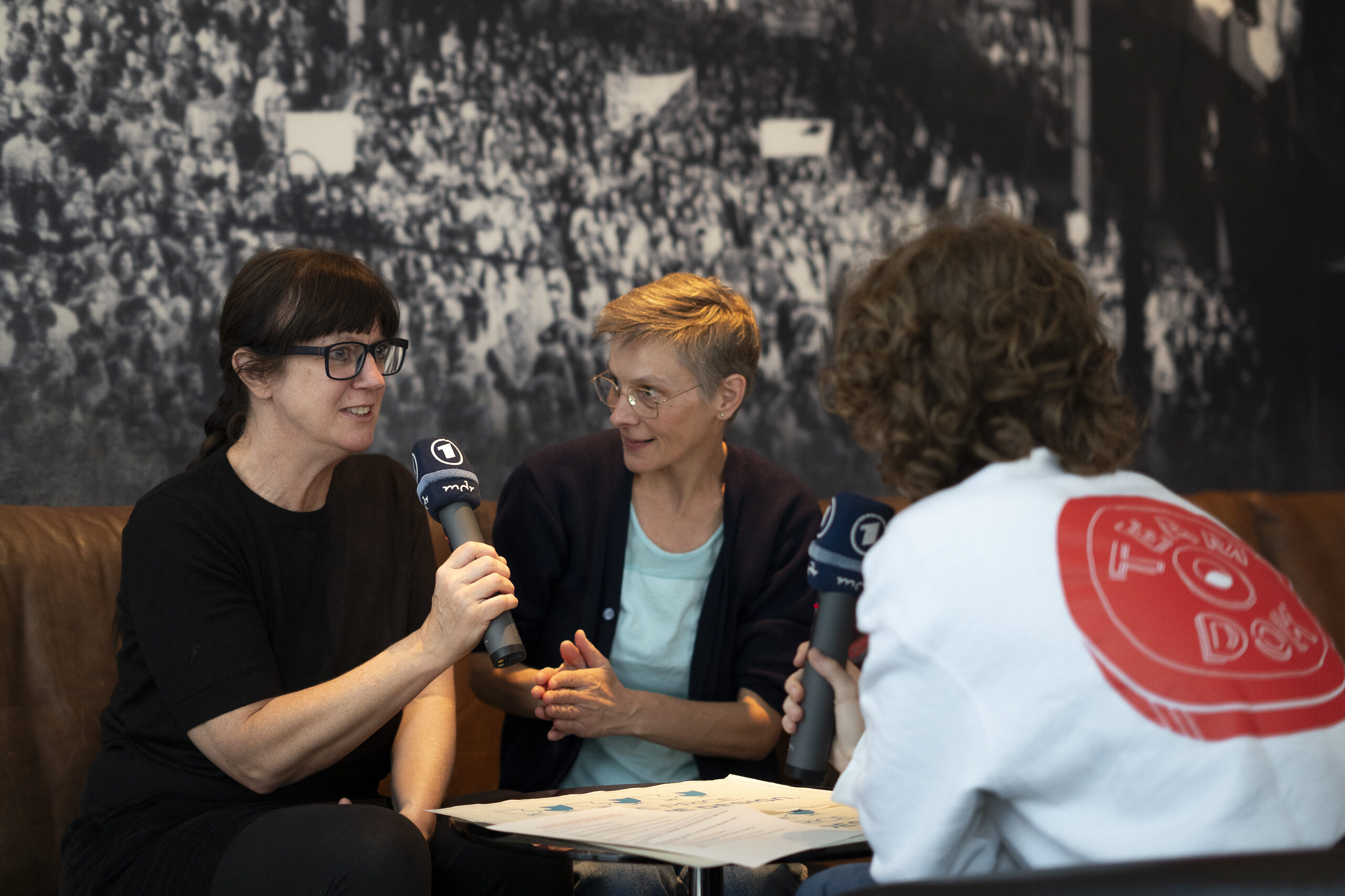The short film “Himmel wie Seide. Voller Orangen” takes us on a special journey through time in ten intense minutes: the story of the first GDR travel group that was headed for the coveted destination ‘West-West’, namely Mallorca, after reunification. We are immersed in the personal memories of an East German who takes us on a journey accompanied by an original collage technique.
These travel experiences are described by a narrator whose voice is so familiar and nostalgic that you could easily imagine her as your own grandmother. Her personal memories lend the story emotional depth and capture a time when borders were opening up and the world suddenly became bigger for East Germans.
Mallorca, already the most popular vacation destination for West Germans in the 1960s, represented a new, almost fairytale-like reality for many East Germans. For decades, they were only allowed to travel within their own country and the borders of the Iron Curtain. Most people only knew about the Mediterranean, palm trees and exotic fruit from West German television, but being allowed to travel there themselves was a dream come true.
A central symbol that runs through the entire film are the oranges – fruits that were once a rarity for the East Germans and stood for the joy and luxury they experienced in Mallorca. In this way, the oranges subtly convey the differences between the two German cultures, such as taking certain things for granted.
Visually, the film convinces with an original and playful collage technique that combines colorful postcards from the GDR with brochures from Mallorca. This unusual but very apt staging conveys a nostalgic atmosphere and gives the story a special aesthetic. The sound design supports this mood perfectly: the relaxed, Spanish music transports the audience to a sunny vacation feeling and brings the joy and carefree attitude of the vacationers to life.
The movie “Himmel wie Seide. Voller Orangen” manages to capture a piece of formative German history in an original way and, in addition to the first trip to Mallorca, also tells of the cultural differences between East and West Germans, some of which still affect us today. Even though we were only born in the East after reunification, we were able to understand and smile about the inequality between East and West.
Text: Wendel und Oskar
Beitragsbild: © DOK Leipzig 2024 / Himmel wie Seide. Voller Orangen, Betina Kuntzsch





